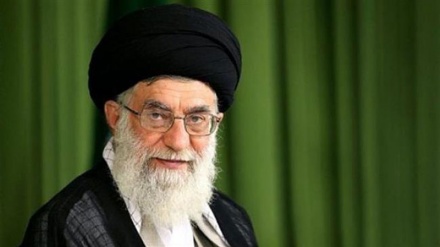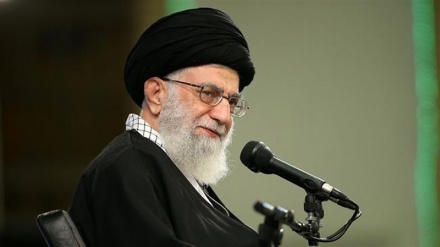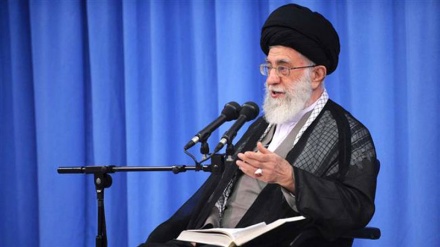In Presence of the Sun (78)
In the name of God, the Compassionate, the Merciful. Welcome to the program. The topic of this episode will be the resistance economy.
As a reminder, we discussed the issue of work, worker and production and what status they enjoy in Islam. This culminates in the concept of the resistance economy which was used by Ayatollah Khamenei for the first time. The Leader of the Islamic Revolution believes that the resistance economy must germinate inside the country and then be exocrine. Describing the resistance economy, he says, “The internal identity of this country and this nation is able to manage and grow itself. This is the meaning of resistance economy.”
Ayatollah Seyyed Ali Khamenei considers the march of the country toward lofty ideals and goals dependent on a dynamic and resistant economy stating, “The resistance economy means the economy that is resistant; doesn’t turn upside down with the global moves and jolts, with the policies of the US and other than US. It is an economy depending on the people.”
For the past recent years the Leader has seriously pursued the issue of the resistance economy. He named the current Iranian calendar as the “year of resistance economy; action and deed” to accelerate the move of the country’s economic locomotive on this rail.
One of the main demands of the Leader of the Islamic Revolution from the government and the affiliated organs has been the materialization of resistance economy. In his speeches, he has explained this concept as a scientific pattern complying with the requirements of the country. Ayatollah Khamenei likens the economy of resistance to a small shrub that rises from the heart of the country’s capacities and people and the growth and thriving of this shrub take place inside the country. He stresses, “The resistance economy doesn’t mean that we surround and restrict our economy inside the country. No, it is endogenous but extrovert. It interacts with the global economies. It faces with the economies of other countries with power.”
Ayatollah Khamenei describes the most important feature of the resistance economy as its being “people-based”. He elaborates, “The resistance economy materializes by the will of people, asset of people, and presence of people. But being “non-governmental” doesn’t mean that the government has no responsibility against it. Sure, the government is responsible for planning, setting the ground, capacitating, directing and assistance. The economic work and activity is in people’s hand but the government- as a public responsible- supervises, guides and helps. Wherever some people want to misuse and embark on economic corruption, [the government] prevents them. Wherever some people need assistance it helps them. Thus, preparation of conditions and facilitation of affairs is the duty of the government.”
Another feature of the resistance economy is that it is knowledge-based. The Leader maintains that the knowledge is useful which leads to production. He says, “One of the best manifestations and most effective features of the resistance economy are the knowledge-based companies which can make it more sustainable.”
Ayatollah Khamenei considers founding the country’s economy on the basis of production of wealth via knowledge-based companies as a ground for attaining true power and bolstering the spirit of self-belief, self-reliance and national power which will ultimately result in the political power.
Then he mentions another feature of this economy as being “justice-based”. Being justice-based means that the resistance economy will lead to production of national wealth and thence there will be a public welfare.
As the Islamic Revolution cut the hands of the arrogant enemies from the assets and resources of the country, they began dealing blows to the economy of Iran through sanctions and satanic plots. Thus having a firm and robust economy can counter their conspiracies. Such an economy will not let the illegal sanctions hinder the national move toward progress or cause despair among the youths.
Ayatollah Khamenei is of the opinion that reaching such an economy is by no means impossible and it can be achieved through the effort of all strata of the nation and endeavours of governmental, academic, scientific and industrial centers. He stresses, “Achieving the resistance economy is completely, practically and surely possible due to the capacities; as this country has extraordinary capacities.”
The Leader of the Islamic Revolution believes that the young manpower is one of the greatest capacities of the country to reach the resistance economy. In view of the Leader the educated, resourceful and skilled young manpower of the country can put aside the biggest stones and precipitate the speed of the country manifold.
Ayatollah Khamenei points to oil and gas as other important capacities of Iran saying, “Besides, the mines of gold and rare metals are scattered all over the country. Iron ore, gems, different kinds of essential and basic metals- which are considered as the mother industries- exist in the country. This is a great capacity, too.”
Referring to Iran’s geographical location, the Leader mentions it as another capacity to achieve resistance economy. He says, “We are neighbor with 15 countries which commute. Transit is one of the great capacities of countries. Our country enjoys this. In the south it leads to high seas and in the north to territorial waters. In our neighbors there, live nearly 370 million people which, this magnitude of communication and neighbors, is a very great capacity for the economic prosperity of a country.”
Ayatollah Seyyed Ali Khamenei emphasizes on the support of the officials for domestic production as the fundamental factor to materialize the resistance economy, saying, “Officials should support domestic production. How? If there is need for a law they should support legally. Where there is need for judicial support they have to do it. Where there is need for administrative support they must encourage and do things. These things should be done. National production must flourish.”
The Leader of the Islamic Revolution enumerates investment in domestic production, support of the banks for producers, people’s support for domestic production, presentation of products with good quality as the aspects that can help the resistance economy grow.
To sum up the resistance economy, Ayatollah Khamenei says, “Resistance economy, meaning to consolidate the bases of economy, is one of our duties today; and everybody can have a role in it: the officials of three branches of power, each and everybody among people, those who are skilled to work, those who have asset and the experts [can play a role in it].
RM/MG


